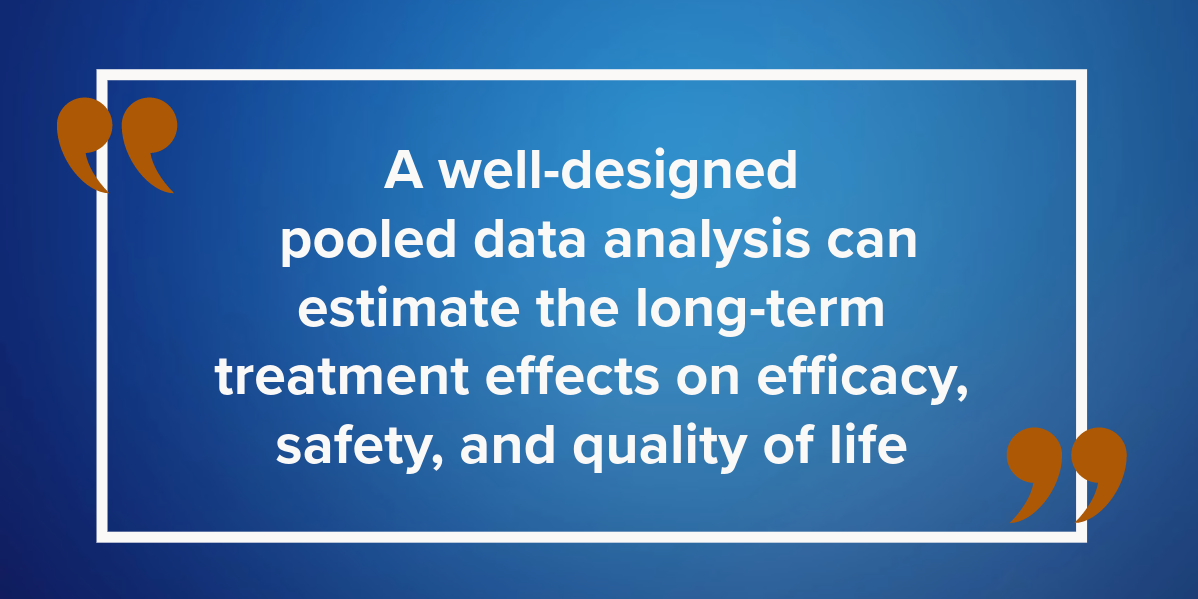 For drug and biotech developers, understanding long-term treatment effects is an important part of evaluating the benefit-risk balance of their products. However, primary efficacy studies are often limited to shorter treatment durations. One way to gather information on long-term treatment effects is to integrate data from existing studies, both internal and external, into a pooled database for analysis. A well-designed pooled data analysis can estimate the long-term treatment effects on efficacy, safety, and quality of life in the patient population and in subgroups of interest.
For drug and biotech developers, understanding long-term treatment effects is an important part of evaluating the benefit-risk balance of their products. However, primary efficacy studies are often limited to shorter treatment durations. One way to gather information on long-term treatment effects is to integrate data from existing studies, both internal and external, into a pooled database for analysis. A well-designed pooled data analysis can estimate the long-term treatment effects on efficacy, safety, and quality of life in the patient population and in subgroups of interest.
In the following example, RTI Health Solutions used pooled data analysis to demonstrate the long-term benefit of a treatment for kidney disease. Our client was developing a treatment that had been shown to slow kidney function decline in short-term clinical studies. They wanted to compare this treatment with standard of care over a longer period using existing clinical research data.
The developer had data from approximately 10 clinical studies, including single-arm phase 2 studies, randomized phase 3 studies, treatment extension studies, and observational studies. While the individual studies had relatively short treatment durations, combined they contained patient data spanning nearly 10 years.
OUR APPROACH
To assess long-term treatment effect, we first had to address database structure differences and treatment gaps between studies using the following approach.
- Selected relevant studies
- Constructed a pooled database and linked the data for longer treatment duration
- Evaluated the design and methodology of each study to ensure that they met quality standards and that the data were consistent and comparable
- Obtained long-term treatment effect for standard of care using historical control data from NIH-sponsored studies
- Matched subjects 1-to-1 on key influencing variables to control for differences among those variables
- Employed piecewise linear mixed models to account for treatment gaps
Our client used the results to demonstrate longer-term benefits of their treatment in slowing kidney function decline. Pooled data analysis is a valuable tool for researchers and drug developers. When well designed and carefully conducted, it is a scientifically sound way to use existing studies to help understand long-term treatment effects sooner and to improve the quality of care for patients.
